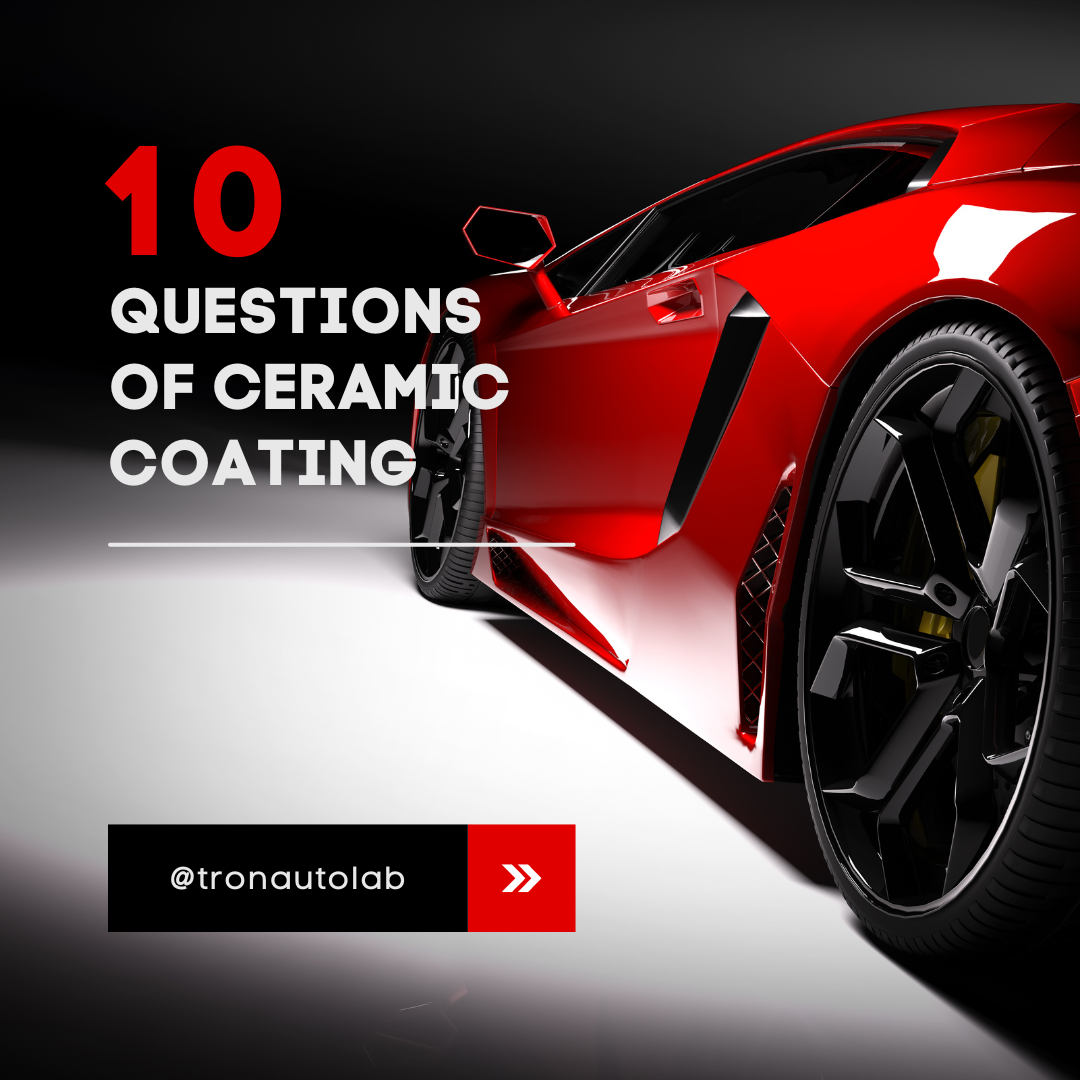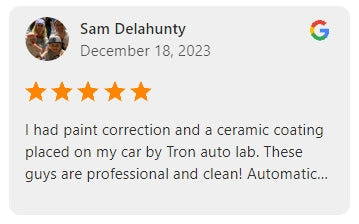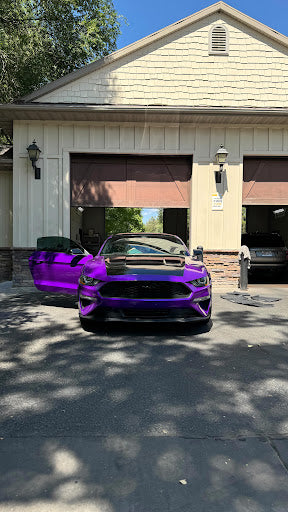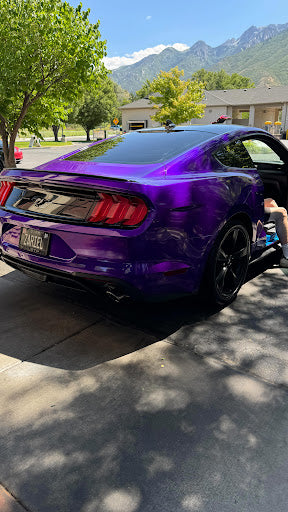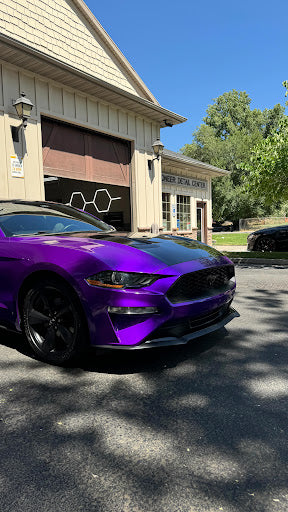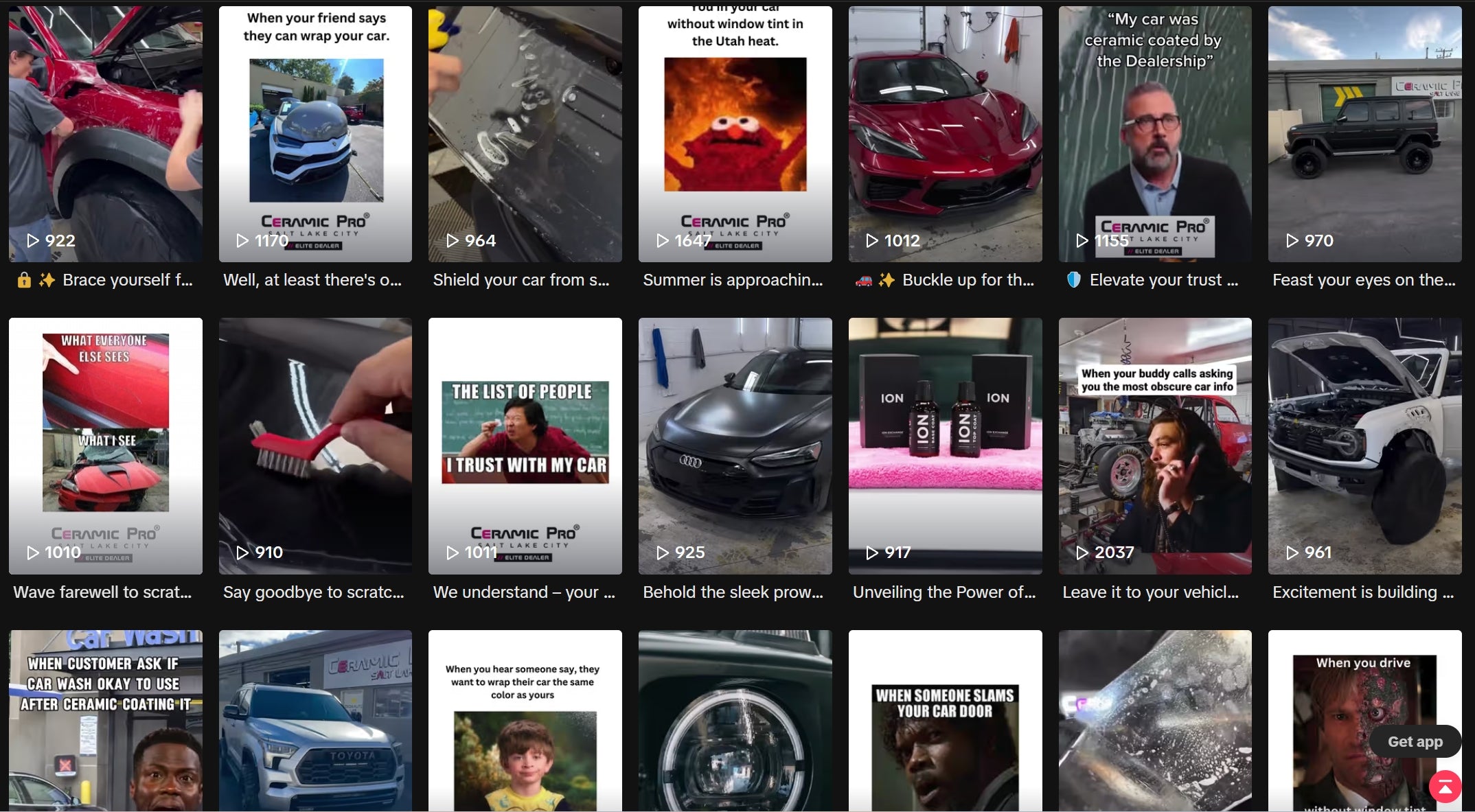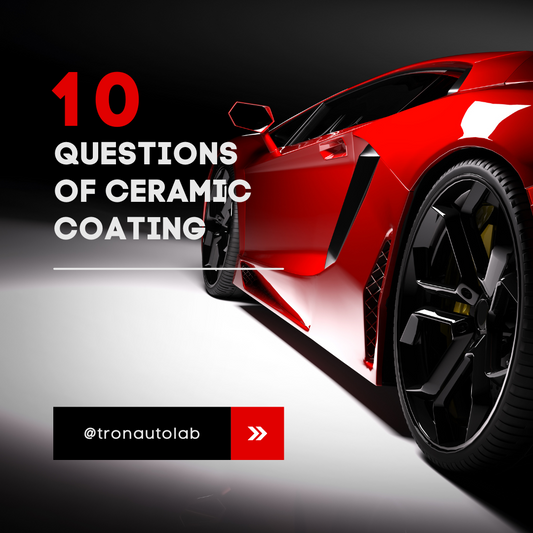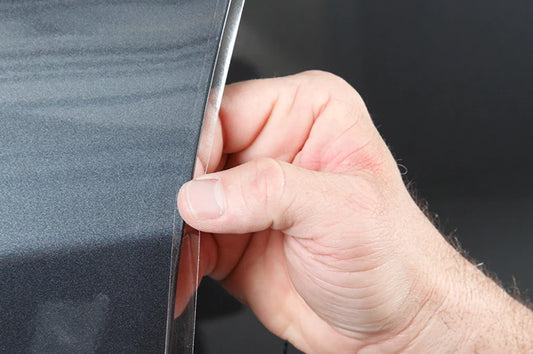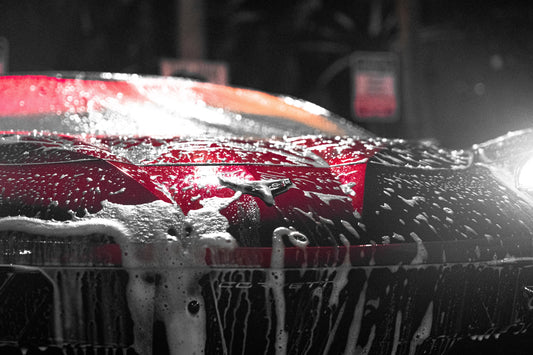If you're considering a ceramic coating for your car, truck, or SUV, you probably have some questions about this increasingly popular product. Ceramic coatings are designed to provide long-lasting protection for your vehicle's paint and are often marketed as a superior alternative to traditional waxes or sealants. However, with so many products and installation options available, it can be overwhelming to know where to start. In this article, we'll answer the top 10 most popular questions about ceramic coatings, so you can make an informed decision before you buy. From the benefits and cost to the application process and maintenance tips, we'll cover everything you need to know to ensure that your investment in a ceramic coating is a worthwhile one.
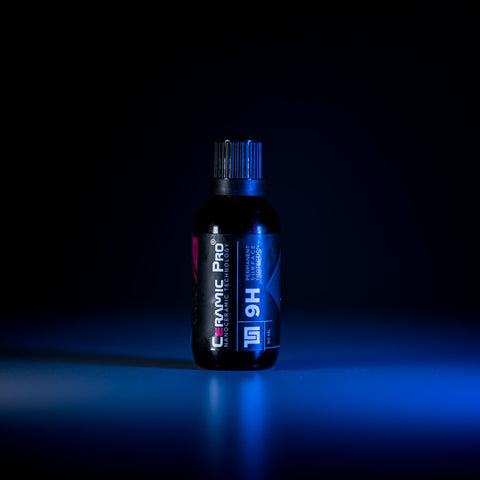
What is a ceramic coating and how does it work?
A ceramic coating is a liquid polymer that is applied to a vehicle's exterior surfaces to protect it from various environmental hazards. It creates a chemical bond with the paint of the vehicle, providing a protective layer that is harder and more durable than traditional wax or sealants. Ceramic coatings are made from nanotechnology, which allows them to bond to the surface of the car at a molecular level.
Ceramic coatings work by creating a hydrophobic barrier that repels water, dirt, and other contaminants. They provide exceptional protection against UV rays, which can cause fading and oxidation, as well as against chemical stains, bird droppings, and other types of damage. Additionally, the high-gloss finish of ceramic coatings can enhance the appearance of the vehicle, making it look cleaner and more polished.
Overall, a ceramic coating is an advanced form of paint protection that can help keep a car looking newer for longer. It is an investment that can provide long-lasting protection and make car maintenance easier and more efficient.

What are the benefits of using a ceramic coating on my car?
There are several benefits to using a ceramic coating on your car. These include:
Protection: Ceramic coatings offer a hard, protective layer that can help shield your car's paint from various types of damage. This includes UV rays, acid rain, bird droppings, and more.
Durability: Ceramic coatings are more durable than traditional wax or sealants, meaning they can last for years with proper care and maintenance.
Easy maintenance: Ceramic coatings make it easier to clean your car, as they repel dirt, water, and other contaminants. This means you will spend less time washing and drying your car.
Enhanced appearance: The high-gloss finish of ceramic coatings can enhance the appearance of your car, making it look shinier and more polished.
Cost-effective: While ceramic coatings may have a higher upfront cost than traditional waxes or sealants, they are a cost-effective option in the long run because they last longer and require less maintenance.
Overall, ceramic coatings offer a range of benefits that can help keep your car looking newer for longer while also making maintenance easier and more efficient.

How long does a ceramic coating last?
The longevity of a ceramic coating largely depends on factors such as the quality of the product, the method of application, and the conditions in which the vehicle is driven and stored. However, in general, a ceramic coating can last from 2 to 5 years with proper maintenance.
To ensure the longest lifespan for your ceramic coating, it's important to follow the manufacturer's instructions for application and maintenance. This typically involves washing the vehicle regularly with a pH-neutral shampoo and avoiding abrasive cleaning tools or chemicals that could damage the coating. It's also important to avoid exposing the car to extreme temperatures, abrasive conditions, or harsh chemicals that could compromise the coating's integrity.
While a ceramic coating is designed to provide long-lasting protection, it is not completely permanent. Over time, the coating will gradually wear away or become less effective, especially if it is exposed to harsh conditions or frequent use. At this point, it may be necessary to reapply the coating to ensure continued protection for the vehicle.
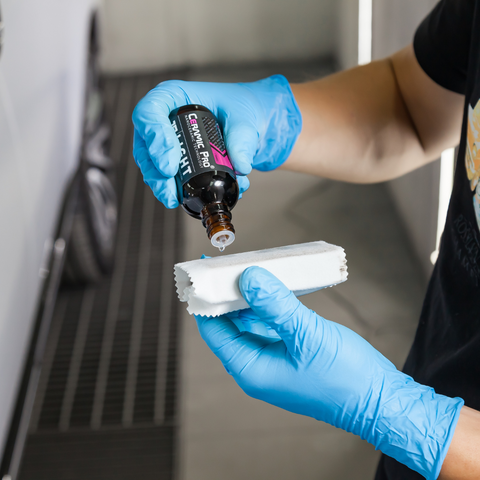
How much does it cost to apply a ceramic coating?
The cost of applying a ceramic coating can vary depending on factors such as the size and type of vehicle, the quality of the product, and the level of service provided by the installer. On average, the cost of a professional ceramic coating application for a standard-sized car can range from $500 to $2,000.
It's important to note that the cost of a ceramic coating should not be the only factor to consider when deciding whether or not to invest in this type of protection. While ceramic coatings may have a higher upfront cost than traditional waxes or sealants, they offer long-lasting protection and can save you time and money on maintenance in the long run.
It's also important to choose a reputable and experienced installer for your ceramic coating application, as this can affect the overall quality and durability of the coating. Be sure to research potential installers, read reviews, and ask for references to ensure that you are getting the best value for your investment.

Can I apply a ceramic coating myself or should I have it professionally applied?
While some ceramic coatings are marketed as DIY products, it's generally recommended to have a professional apply the coating for best results. Professional installers have the necessary training, experience, and equipment to ensure that the coating is applied correctly and evenly, which can affect its overall durability and effectiveness.
Attempting to apply a ceramic coating yourself can also be risky, as improper application can result in visible defects such as streaks, bubbles, or uneven coating thickness. This can compromise the protection offered by the coating and even result in damage to your car's paint.
If you are considering a ceramic coating for your car, it's important to do your research and choose a reputable installer with a track record of quality work. This can ensure that you get the best possible protection and value for your investment.

How long does a ceramic coating last?
The longevity of a ceramic coating can vary depending on factors such as the quality of the product, the level of maintenance, and the conditions in which the vehicle is driven and stored. However, on average, a ceramic coating can last anywhere from 2 to 5 years.
It's important to note that while a ceramic coating can provide long-lasting protection for your vehicle's paint, it is not a permanent solution. Over time, the coating may wear down and require reapplication to maintain its full effectiveness. Regular maintenance, such as hand washing and using recommended detailing products, can help to extend the lifespan of the coating.
It's also important to choose a reputable and experienced installer for your ceramic coating application, as this can affect the overall quality and durability of the coating. Be sure to ask about the warranty offered by the installer and the manufacturer of the product, as this can give you peace of mind and protection against any defects or issues with the coating.

Can a ceramic coating be removed once it's applied?
Yes, it is possible to remove a ceramic coating once it's been applied, but it can be a time-consuming and labor-intensive process. The method used to remove the coating will depend on the type of product and the condition of the coating.
One option for removing a ceramic coating is to use a machine polisher and abrasive compound to gradually remove the coating layer by layer. This can be a delicate process, as too much pressure or too abrasive of a compound can damage the underlying paint.
Another option is to use a chemical remover designed specifically for ceramic coatings. These products can dissolve the coating and allow it to be wiped away, but they can be harsh and may require multiple applications to fully remove the coating.
If you're considering removing a ceramic coating, it's recommended to consult with a professional detailer who has experience with the process. They can assess the condition of the coating and recommend the best method for removal, while minimizing the risk of damage to the paint.

Can I apply a ceramic coating myself, or should I hire a professional?
While it is possible to apply a ceramic coating to your vehicle yourself, it is generally recommended to have it professionally installed. Ceramic coatings require a high level of skill and attention to detail to ensure proper application and optimal results. In addition, the prep work required before the coating can be applied, such as paint correction and surface cleaning, can be time-consuming and difficult for beginners.
Professional installers have the experience and training needed to properly prepare the surface and apply the coating, ensuring maximum durability and protection. They also have access to high-quality products and equipment that may not be available to the average consumer.
If you do decide to apply a ceramic coating yourself, be sure to thoroughly research the process and follow the manufacturer's instructions carefully. It's also important to have realistic expectations and understand that the results may not be as good as a professional installation.

How does a ceramic coating compare to traditional wax or sealant?
Ceramic coatings are often marketed as a superior alternative to traditional wax or sealant, offering longer-lasting protection and a higher level of shine and gloss. While traditional wax or sealant can provide temporary protection for your vehicle's paint, they are typically less durable and require more frequent reapplication.
Ceramic coatings, on the other hand, form a strong bond with the surface of your vehicle, creating a protective layer that can withstand harsh environmental conditions and UV rays. They are also hydrophobic, meaning that they repel water and prevent contaminants from adhering to the surface. This can make washing and maintaining your vehicle easier and more effective.
In addition, ceramic coatings are typically more expensive than traditional wax or sealant, but they can offer a better return on investment due to their longer lifespan and superior performance. Ultimately, the choice between a ceramic coating and traditional wax or sealant will depend on your specific needs and preferences, as well as your budget.

How long does a ceramic coating last?
The longevity of a ceramic coating will depend on a variety of factors, including the quality of the product, the condition of the surface being coated, and how well it is maintained. Generally, a well-applied ceramic coating can last anywhere from 2 to 5 years, although some high-end products claim to offer up to 10 years of protection.
It's important to note that a ceramic coating is not a permanent solution and will eventually wear down over time. The coating may also be affected by environmental factors such as exposure to sunlight, pollutants, and harsh weather conditions.
To maximize the lifespan of your ceramic coating, it's important to follow the manufacturer's instructions for maintenance and care. This may include regular washing, avoiding abrasive or acidic cleaning products, and avoiding prolonged exposure to extreme temperatures or sunlight.
Ultimately, the longevity of your ceramic coating will depend on how well it is installed and maintained, as well as how frequently you use your vehicle and the conditions it is exposed to.

